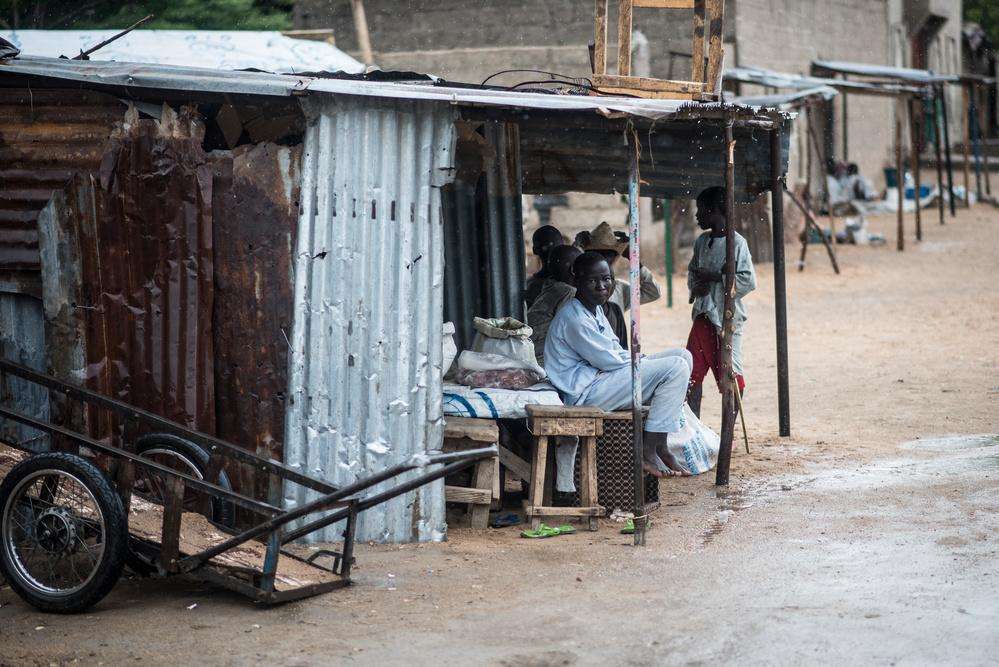Slideshow: Treating Malnutrition in Borno State
NEW YORK/MAIDUGURI, JULY 20, 2017—In anticipation of the rainy season—which coincides with the peak of malaria and increased malnutrition rates—Doctors Without Borders/Médecins Sans Frontières (MSF) is scaling up assistance to address what are expected to be increasing humanitarian and medical needs in hard-to-reach areas of Borno State, Nigeria. The rainy season will render some locations impossible to reach, as the countryside transforms into muddy swamps and roads disappear under water. Unless it is deployed in advance, approximately 40,000 inhabitants and displaced people living in the area will be left without any aid.
“Insecurity and logistical challenges make it difficult to provide assistance in these places, but we are working hard to step up action now before the rains come,” said Dr. Moussa Sow, MSF project coordinator for the mobile rainy season teams. “People here have been displaced and many have been victims of violence. Our team will do our utmost to make sure they don’t suffer or die of preventable diseases.”
MSF is deploying a mobile team to deliver medical and humanitarian support in the remote town of Rann, which will soon turn into an island and become completely cut off from the outside world. Over the coming months, the mobile team will also carry out health consultations, give preventive treatment for malaria, distribute mosquito nets and soap, work to improve water and sanitation, and screen and treat children for malnutrition in the areas of Rann, Banki, and Damasak that are still accessible.
Living conditions are already precarious and displaced people will depend on the continuity of food distribution to avoid malnutrition. More rain could also lead to outbreaks of waterborne diseases such as cholera. A hepatitis E outbreak has already been declared in parts of Borno state, with MSF leading the medical response in Ngala.
Additionally, the risk of outbreaks will be higher if crowded camps for displaced people flood and there is insufficient access to clean water and toilets.
In January, only one liter of water was available per person per day in Rann—far below the 20 liters recommended during emergencies to meet basic hygiene and food hygiene needs to prevent the spread of waterborne illnesses. MSF and other organizations have worked to improve the water supply, enabling people in Rann to access between ten and fifteen liters of water each per day.
However, there is still concern that the insufficient number of latrines could lead to disease outbreaks. It is estimated that 279 people share each latrine in Rann. According to accepted minimum sanitation standards, one latrine should be used by a maximum of 20 people.




